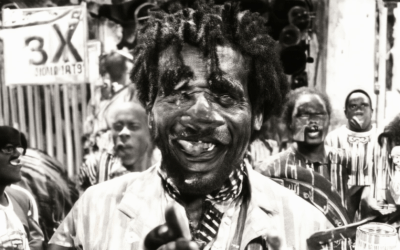Elevate your soul with the powerful essence of soulful singing—where your voice becomes an extension of your spirit. Soul music, with its rich, emotive tones, demands a unique blend of technique and authenticity. Whether you’re a seasoned vocalist or just beginning your journey, mastering the art of soulful singing can transform your voice and connect you deeply with your audience. In this guide, we explore the top online and local vocal training programs designed to help you harness the magic of soul music, from understanding the techniques to discovering the best resources for your growth. Let’s embark on a journey to unlock your vocal potential and embrace the soulful sounds that resonate within you.

Common Vocal Techniques in Soul Music
Soul music, characterized by its emotional depth and rhythmic complexity, incorporates several distinctive vocal techniques. Among these are:
- Melisma : Singers often employ melisma, where multiple notes are sung simultaneously, adding layers of expression and texture to the music. This technique is notably used by iconic soul vocalists like Aretha Franklin and Mary J. Blige.
- Scat Singing : Scat singing involves creating sounds and phrases that mimic instruments or add spontaneous improvisation. This technique allows for a dynamic and expressive element in soul music, as seen in performances by Nina Simone and Stevie Wonder.
- Vibrato Usage : Vibrato, the slight fluctuation in pitch, is used to convey emotional intensity. This technique is effectively utilized by soul divas to add depth and feeling to their deliveries.
- Call and Response : Influenced by gospel traditions, call and response patterns are common, where the lead vocalist engages with backing vocals in a conversational style, enhancing community and emotional connection.
These techniques collectively contribute to the soulful, emotive style that defines the genre, making soul music both deeply expressive and universally relatable.
Top Vocal Coaches in the World
When it comes to identifying the world’s premier vocal coaches, several names stand out for their exceptional contributions to music education and their ability to nurture talent. Among these, Cheryl Porter remains a titan in the field, celebrated globally for her expertise in vocal technique and her work with renowned artists.
Brett Manning, known for his unique approach to vocal training, has also garnered significant recognition. His methods have helped numerous aspiring singers develop their voices and stage presence. Roger Fisher, with his extensive background in music theory and performance, brings a wealth of knowledge to his students, helping them master both classical and contemporary styles.
Additionally, coaches like Eric Vannberg and Dave Travers are making waves with their innovative teaching techniques and dedication to personal growth. Their influence extends beyond just technical skills, focusing on building confidence and artistry in their students.
It’s important to note that the title of the best vocal coach can vary based on individual preferences and the specific needs of the student. Each coach offers unique strengths, and the choice often depends on the musical style and career goals of the aspiring artist.

How Can I Train Myself for Vocals?
To enhance your vocal abilities, consider implementing a structured training regimen that combines daily practice, proper technique, and consistent effort. Here’s a comprehensive guide to help you improve your vocal skills:
- Daily Warm-Up Routine
- Start with 10 minutes of humming your favorite songs to loosen up your vocal cords.
- Practice diaphragmatic breathing by lying on your back and inhaling deeply, allowing your stomach to rise.
- Breathing Techniques
- Focus on diaphragmatic breathing during practice to support your voice with controlled exhalations.
- Experiment with different vowel sounds (like “ah,” “ee,” “oo”) to explore your vocal range and resonance.
- Articulation Exercises
- Practice articulating syllables slowly, focusing on clear pronunciation of each sound.
- Use tongue exercises to maintain steady tongue movement, which aids in smooth vowel transitions.
- Vocal Range Expansion
- Learn to scale and interval sing by holding notes and moving up or down by minor and major intervals.
- Start with simple scales and gradually introduce more complex ones to expand your range.
- Vocal Exercises
- Incorporate humming and lip trills into your routine to improve flexibility and control.
- Practice these exercises for 5 minutes daily to strengthen your vocal muscles.
- Song Learning
- Choose songs within your comfort zone and gradually challenge yourself with higher pitches.
- Transcribe lyrics accurately and practice them daily to improve articulation and note holding.
- Self-Assessment
- Record your practice sessions to identify areas needing improvement and monitor progress over time.
- Be patient and consistent, understanding that skill development takes dedication and time.
- Health and Well-being
- Stay hydrated by drinking plenty of water throughout the day.
- Avoid caffeine and alcohol to prevent dehydration and vocal strain.
- Maintain overall health with adequate rest and a balanced diet to support vocal performance.
- Regular Practice
- Keep practice sessions short, around 20-30 minutes, to avoid vocal fatigue.
- Establish a consistent routine that fits your schedule for sustained progress.
- Professional Feedback
- Consider seeking guidance from a vocal coach to receive personalized feedback and advice.
- Look for local coaches or online platforms offering lessons tailored to your needs.
- Enjoyment and Motivation
- Make singing a enjoyable experience to stay motivated and engaged.
- Set realistic goals and celebrate small achievements to maintain momentum.
By integrating these practices into your daily routine, you can develop a strong, confident vocal presence. Remember, consistency and patience are key to achieving your goals.

Ariana Grande’s Vocal Coach
Ariana Grande has had the support of a vocal coach to enhance her singing skills. Among the notable names associated with her training is Monte Neil . Known for his expertise in vocal technique, Monte Neil has played a significant role in refining Ariana’s voice, contributing to her remarkable performance capabilities. While details about their collaboration are not widely publicized, Monte Neil’s guidance is believed to have been instrumental in her artistic development.
Taylor Swift’s Vocal Coach
Taylor Swift has had various vocal coaches throughout her career, helping her develop her singing skills. One notable coach is Shane McAnally, a renowned producer and songwriter who has worked closely with Taylor on several of her hits. Shane McAnally is known for his expertise in vocal production and has contributed significantly to Taylor’s musical growth.

Ariana Grande’s Vocal Range
Ariana Grande is known for her incredible vocal range and flexibility. Her voice spans several octaves, allowing her to perform across various musical styles with ease.
Ariana Grande’s Upper Vocal Range
- Head Voice: Ariana’s head voice extends up to E7, which is a high soprano range. This allows her to hit piercing, ethereal notes that are both delicate and impressive.
- Chest Voice: In her chest voice, she can sing lower notes, typically down to A3 or Bb3, giving her a powerful and resonant sound when belting.
- Mixed Register: She seamlessly transitions between head and chest voice, creating a smooth and dynamic vocal delivery.
Ariana Grande’s Lower Vocal Range
- Bass/Baritone Range: While primarily a soprano, Ariana can access lower pitches in her chest voice, adding depth to her performances.
- Supporting Notes: She can hold sustained low notes with control, contributing to her ability to sing in diverse genres.
In conclusion, Ariana Grande’s vocal range is highly versatile, enabling her to excel in pop, R&B, jazz, and classical music. Her ability to switch between registers and maintain pitch accuracy makes her one of the most gifted vocalists of her generation.





0 Comments